The return of the Don’t Knock the Rock fest, plus more of the week’s best films in L.A.
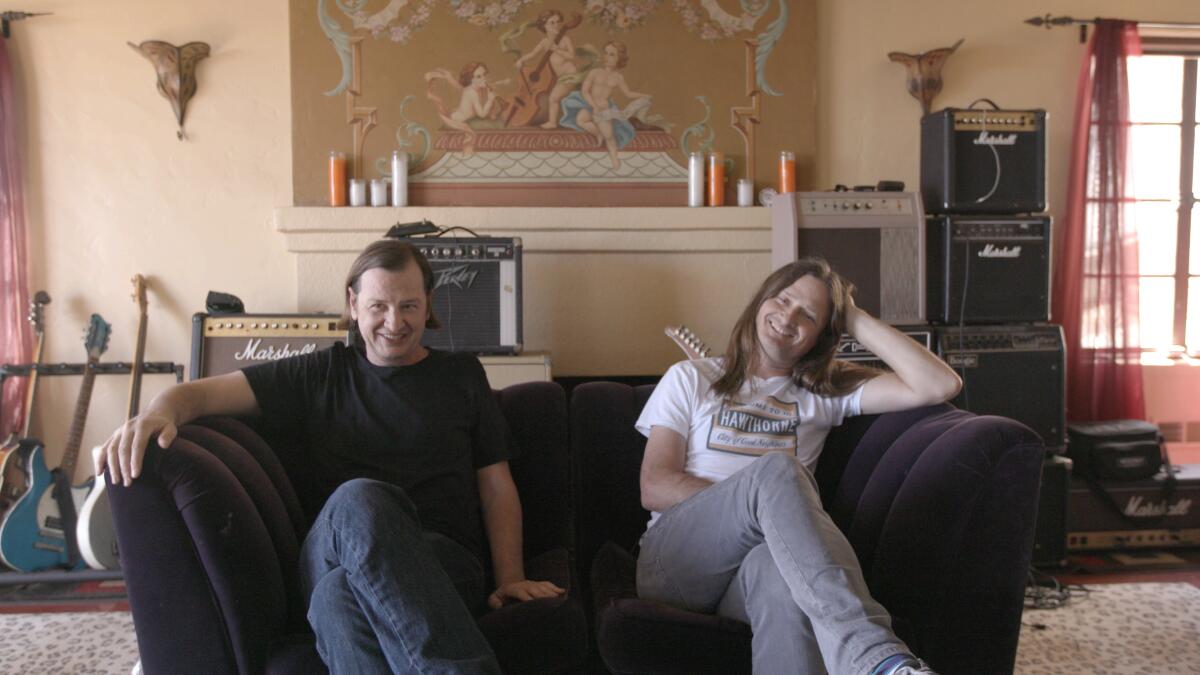
- Share via
Hello! I’m Mark Olsen. Welcome to another edition of your regular field guide to a world of Only Good Movies.
Joshua Rothkopf and Matt Brennan are in France for the Cannes Film Festival, and even in just its earliest days this looks to be a thrilling event.
George Miller’s “Furiosa: A Mad Max Saga” is the prequel to 2016’s “Mad Max: Fury Road” with Anya Taylor-Joy stepping into a younger version of the character mad instantly iconic by Charlize Theron.
Rothkopf wrote, “For the first time in Miller’s now-five-film franchise, he seems to be falling shy of the immediacy he’s sustained, often deliriously, for an entire feature. Any prequel would necessitate a certain distance: This is what happened before the story you already know. And if you ever confused Charlize Theron’s hollowed-out stare in “Fury Road” for a lack of backstory (that’s actually the performance you’re noticing), “Furiosa” is here to supply that material for you, not unentertainingly. But with every supersaturated blue sky, russet-colored desert shot and faux-literary chapter heading (“2. Lessons from the Wasteland”), the movie gets further away from feeling like a tale that’s happening, to one that’s already been told, cleaned up and prettified.”
The next day came the premiere of Francis Ford Coppola’s “Megalopolis,” for which the famed filmmaker sold off part of his winery empire to fund himself. The movie itself is a story about an empire in collapse, one that he’d been wanting to tell for some 40 years. The film’s loaded cast includes Adam Driver, Aubrey Plaza, Laurence Fishburne, Shia LeBeouf, Chloe Finneman, Giancarlo Esposito and Nathalie Emmanuel.
As Rothkopf wrote, “In a larger sense, Coppola has moved from the cynicism of his greatest films like ‘The Conversation’ and ‘Apocalypse Now’ — so much power doing so much corrupting — and into something that could fairly be called utopian. I’m not sure if that’s what I want from him as an artist, but I thrill to his unbowed aspiration. He’s not going out with something tame and manicured, but an overstuffed, vigorous, seething story about the roots of fascism that only an uncharitable viewer would call a catastrophe. Rather, it feels like a city. It may be the most radical film he’s ever done. He dedicates it to his late wife, who would have smiled at the evidence of her husband still doing his thing 45 years later.”
Music movies with Don’t Knock the Rock festival
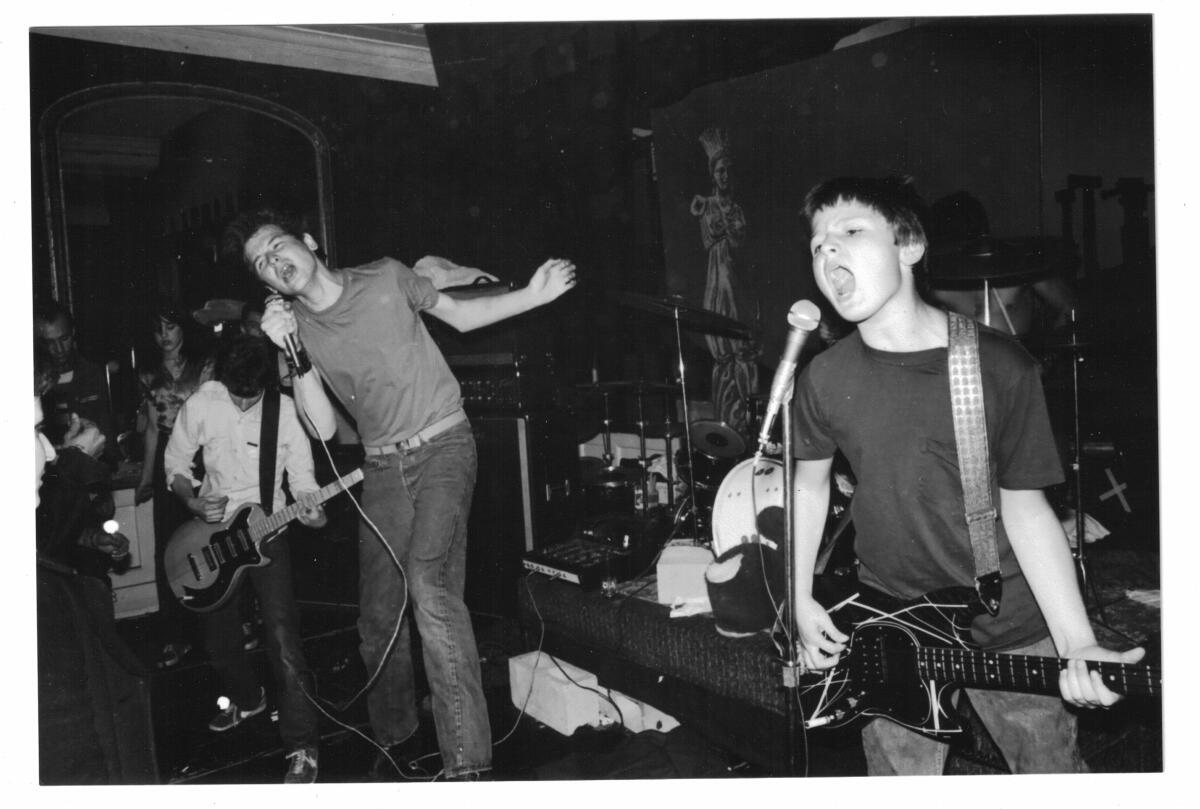
The Don’t Knock the Rock festival returns on Thursday with the L.A. premiere of “Born Innocent: The Redd Kross Story.” Programmed by filmmaker Allison Anders and her daughter, music supervisor Tiffany Anders, the festival will be staged for the first time in partnership with the American Cinematheque at the Los Feliz 3, and run through May 27.
The music-centered festival was first put on by the mother-daughter duo in 2003 and has been on hiatus since 2016. When the two of them decided to revive it, they looked around for suitable partners and were reluctant to reach out to the American Cinematheque because they thought the organization might consider their event too small.
“We were like, are they too big for us? Will they take us on?” asked Tiffany Anders during a Zoom call earlier this week.
“We were definitely humble, because we’re a little festival,” said Allison Anders in the same interview. “We are two people. It’s her and me. Mom-and-daughter shop. And also, we are very fan-centered. Of course we want premieres, L.A. premieres, when we can get them, but we’re just not like that. It’s just: Will people that like the Don’t Knock the Rock vibe come out for this? There might be a documentary on somebody really obscure, but if we know how to find that audience, we’ll do it. And generally we’re that audience too.”
Directed by Andrew Reich, “Born Innocent” spotlights the knockabout chemistry between brothers Jeff and Steven McDonald, positioning their band Redd Kross as an essential influence on four decades of rock in Los Angeles. Unexpectedly inspirational for the way they have soldiered on in the face of a teenage kidnapping, substance abuse, the ups-and-downs of the music business and more, the brothers emerge with their love for music and each other intact.
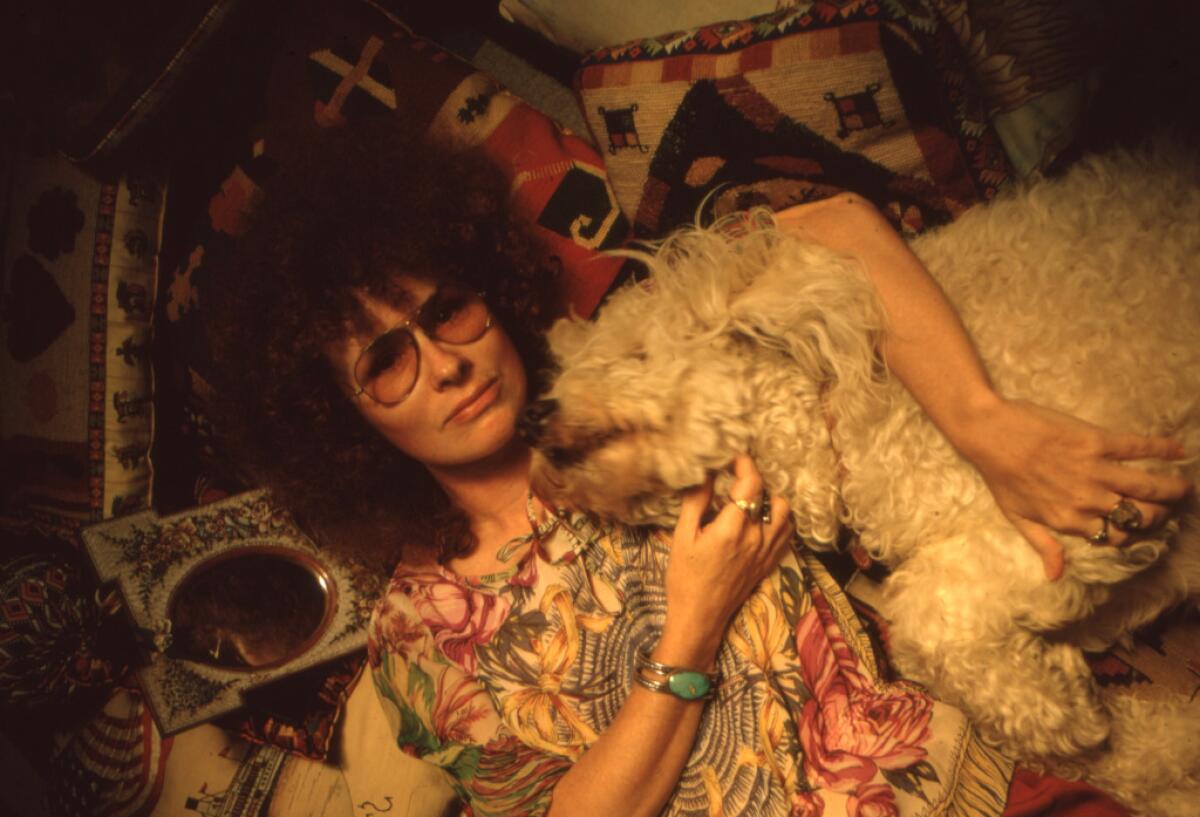
Other local premieres include Julia Greenberg and Dianna Dilworth’s “Dory Previn: On My Way to Where” and Isaac Gale and Ryan Olson’s “Swamp Dogg Gets His Pool Painted.” Ondi Timoner’s “Dig XX,” an expanded 20th anniversary of her documentary on the star-crossed friendship and rivalry between two bands will also play L.A. for the first time.
The festival will also be playing a few narrative features, including Susan Seidelman’s “Smithereens” and “Desperately Seeking Susan.” Allan Arkush’s “Get Crazy,” Fred F. Sears “Don’t Knock the Rock” and Juleen Compton’s rediscovered “The Plastic Dome of Norma Jean” will also screen.
Other doc titles screening include Ava DuVernay’s “This Is the Life” and Ethan Coen’s “Jerry Lee Lewis — Trouble in Mind.”
There will also be a streaming component this year, on the Cineville platform, offering films from this year’s festival and prior years as well. The platform will be available May 23–July 31 and access costs only $10.
Allison Anders had just finished recording a Q&A with director Susan Seidelman that will play with “Desperately Seeking Susan” and noted, “It was crazy because when I was talking with her, I realized she’s probably my most kindred fellow filmmaker. We both see working with musicians and actors together the exact same way. She was saying things that I’ve said over and over.”
Anders added, “There’s something about if a musician is an actor in a movie, they come with a persona that you can work with and maybe get them to let go of some of it. Just watching ‘Desperately Seeking Susan’ again, watching Madonna just walking, just hanging out by the jukebox while ‘Into the Groove’ is playing and her getting on the dance floor dancing to that — it’s just completely my ecstasy.”
Tiffany Anders said, “A musician’s tale is going to be fraught with lots of hardships, no matter who they are. They go through a lot and they’re just great tales of perseverance. Seeing an artist’s life is like no other. It can be inspiring and crazy, so seeing that just adds to the greatness of listening to the records that you love.”
35mm comes to Vidiots
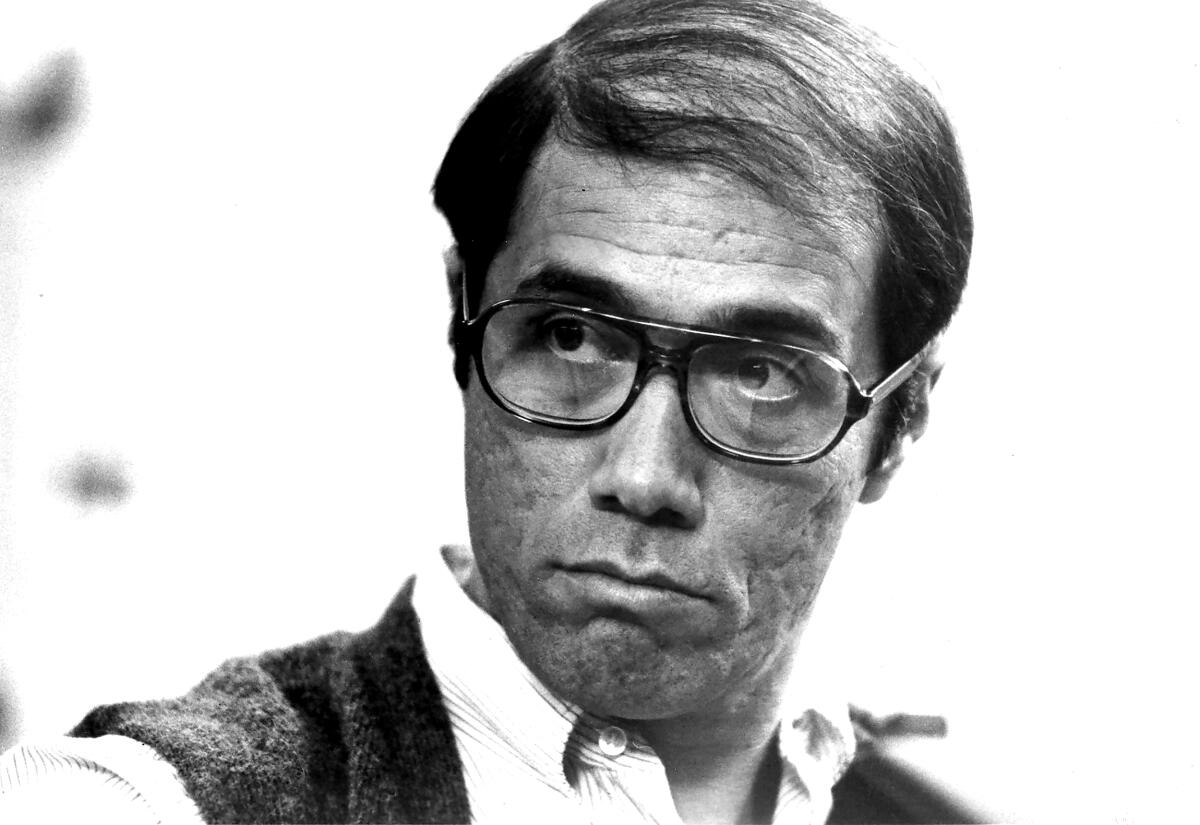
When Vidiots opened its doors in Eagle Rock nearly a year ago, it was with the aim to eventually begin projecting 35mm film as well, This weekend, “Stand and Deliver” will be the first film shown in 35mm at the venue, with star Edward James Olmos in attendance.
Vidiots includes a video store as well as a theater, and the move to begin projecting film continues the organization’s commitment to physical media. As Amanda Salazar, director of programming, explained in a call this week, “It’s this really wonderful opportunity to show certain audiences film for the first time. We have a lot of family programming and our hope is that our all-ages programming will start including some 35mm screenings, being able to talk about that and engage with kids on the history of celluloid and noticing some things within it while you’re watching it.
“Our big picture moving forward is that we want to make sure that films are seen and remain accessible to the public,” added Salazar. “And 35mm is sometimes the only way that a film can be seen. It might be the best format for that version of a film to be seen.”
However, while the Vista Theater and the New Beverly Cinema (both owned by Quentin Tarantino) have a commitment to only screening movies on film, Vidiots will be continue to mix it up with their projection formats.
“We’re not really looking to start programming everything in 35mm, it’s just not our plan,” said Salazar. “If there is a new 4K restoration of a movie, we will absolutely play that version if that makes sense.
“We are in community with many other venues,,” Salazar added. “It doesn’t feel like Vidiots needs to come in and become this 35mm hub. We are lucky to live in a city that’s so devoted to the art form in all of its formats. Programmatically, what’s most exciting is focusing on and being driven towards being able to play work that we wouldn’t otherwise be able to play.”
The only other 35mm presentation currently announced for Vidiots is Mitchell Lichtenstein’s 2008 “Teeth,” starring Jess Weixler, on May 31. Salazar said that more 35mm shows will be in the Vidiots June calendar, with a few special events to mark the venue’s one year anniversary.
Other points of interest
Elaine May’s ‘The Heartbreak Kid’
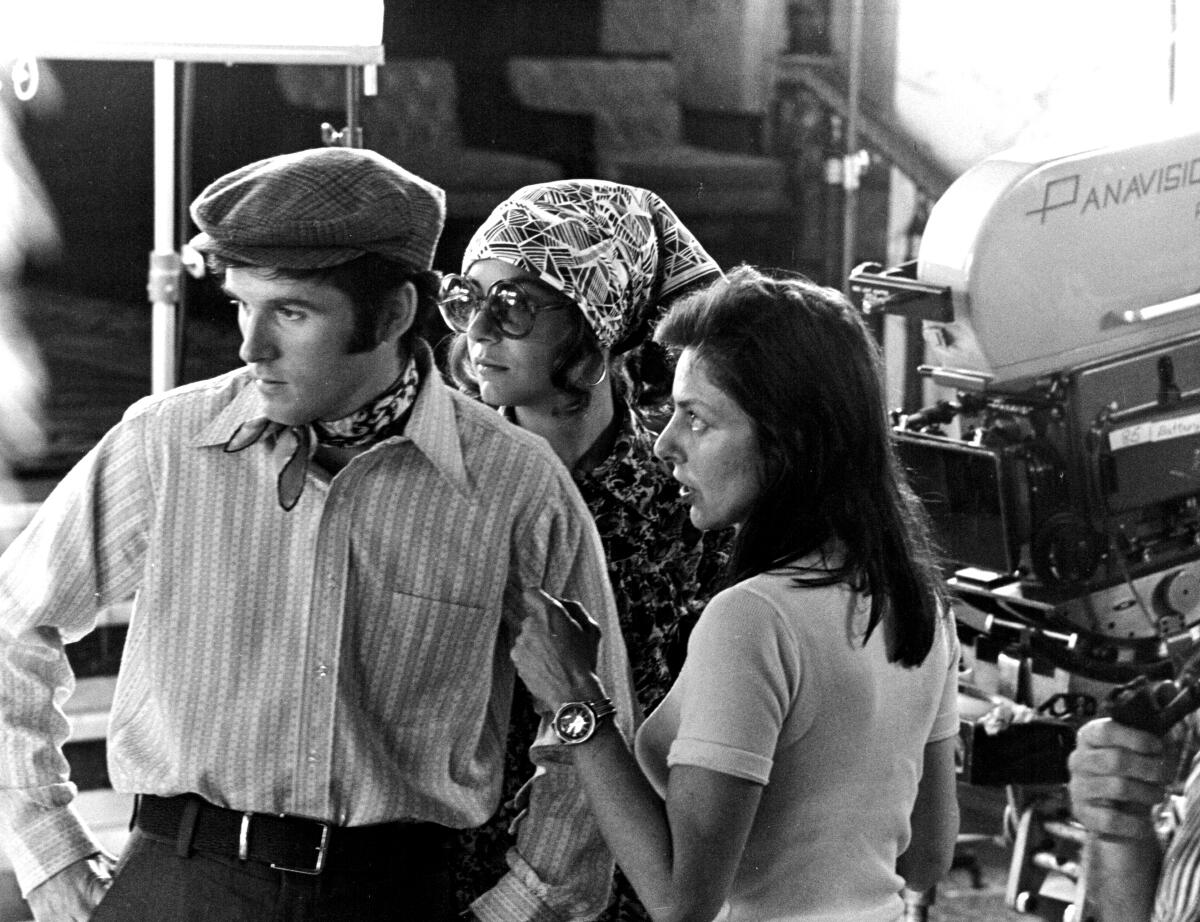
Long made difficult to see by a curious rights limbo that finds the movie owned by the pharmaceutical company Bristol-Meyers Squibb, Elaine May’s dazzling 1972 comedy “The Heartbreak Kid” will be playing this weekend at Alamo Drafthouse venues all across the country, including Los Angeles.
Film historian and programmer Elizabeth Purchell bought a 16mm print of “The Heartbreak Kid” once used for television broadcasts for around $55 off eBay a few years ago. Purchell was able to make a 2K scan of that print and made color corrections and cleaned up the soundtrack. Purchell’s friend, Drafthouse programmer Jake Isgar, was then able to arrange bookings for the film.
In a conversation we had this week, Purchell noted how distribution shapes canons: Critics, programmers and audiences can’t champion movies that they can’t see. Purchell pointed to films like Barbara Loden’s “Wanda” or Toshio Matsumoto’s “Funeral Parade of Roses” as films that have recently grown in stature as they have become more widely available. Elaine May’s reputation as a filmmaker has expanded in recent years as her work has become more broadly seen.
“I think my philosophy has always been, as corny as it is, like a ‘Field of Dreams,’ if you put it on, people will come,” said Purchell, speaking from New York City. “People want to see stuff, they want to discover things, they want to find their new favorite movie.”
In the film, directed by May from a screenplay by Neil Simon based a story by Bruce Jay Friedman, Charles Grodin plays Lenny Cantrow, a sporting-goods salesman who after a brief courtship marries Lila Kolodny, played by May’s daughter Jeannie Berlin. The couple head to Miami Beach for their honeymoon. There Lenny meets the captivating Kelly (Cybill Shepherd) and decides to leave Lila after only five days of marriage. Struggling to make that new relationship work, Lenny eventually comes to realize the person he may most have a problem with is himself.
In a 1972 profile in The Times, referring to Grodin as Chuck, Gregg Kilday noted, “The reality of ‘The Heartbreak Kid’ is such that audiences have a difficult time separating the actors from the characters they play. Grodin reports that the situation got so bad in New York’s Sutton Theater where the film is now playing — what with angry boos and hisses greeting Lenny’s decision to walk out on Lila — that one night Elaine May took Chuck and Jeannie to a screening just to show the audience the two were still on speaking terms.”
During the interview in a suite at the Beverly Wilshire Hotel, Grodin sipped a double martini and noted of his then-burgeoning movie career, “I went out in Westwood last night. I looked at this first-run theater and there I was. But you don’t feel anything. Nothing. Relief, that’s all. Relief that you’re not dead, that it didn’t kill you. Joy is hard to come by.”
The indie-rock ’90s of ‘Half-Cocked’
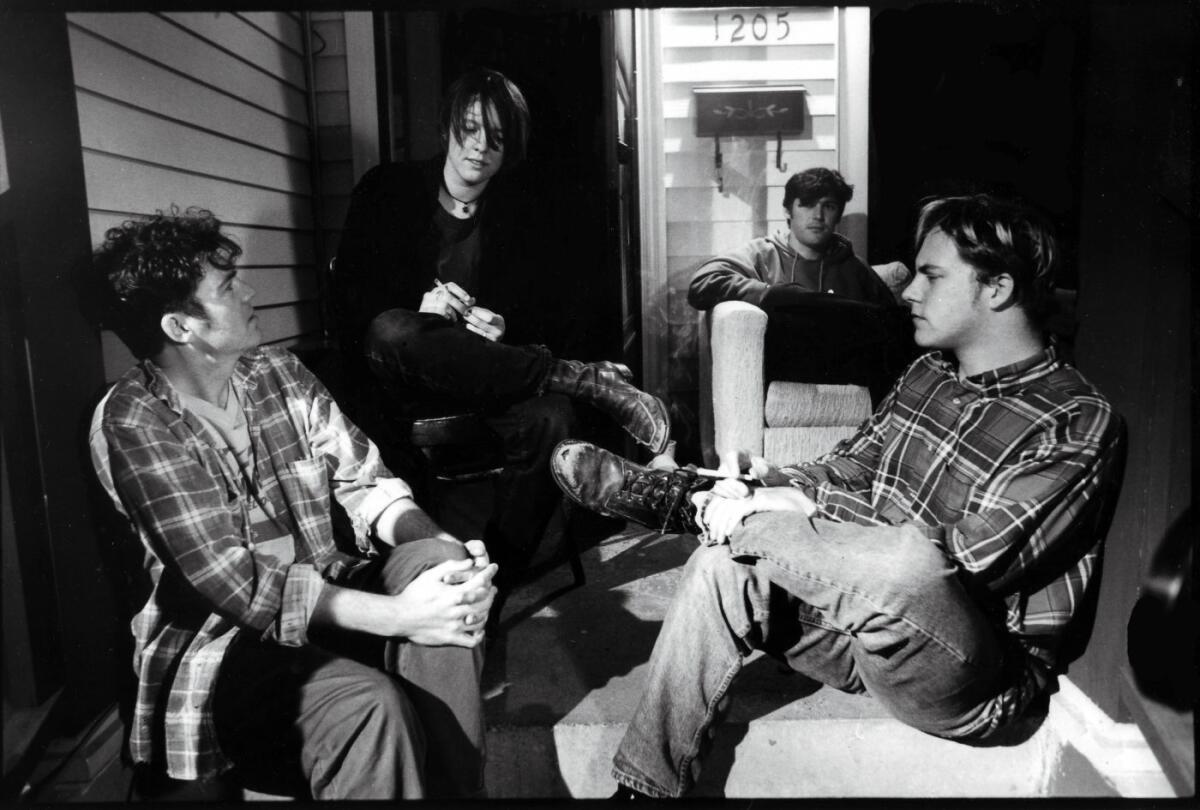
The recent death of recording engineer and musician Steve Albini has brought the indie-rock music scene of the ’90s back into the conversation, and so the timing couldn’t be better to revisit a film rooted in that milieu. On Tuesday, Mezzanine will have a 30th anniversary screening of 1994’s “Half-Cocked,” directed and edited by Suki Hawley, who co-wrote the film with partner Michael Galinsky. (The filmmakers will be in attendance at Tuesday’s screening.)
Shot on black-and-white 16mm by Galinsky, the film captures the get-in-the-van exploits of a band on tour and also the peculiar mix of creativity, boredom, perseverance and idealism that comes along with the on-the-road indie ethos.
Featuring figures from the Louisville, Ky., music scene, the film follows a group of friends who steal the van, along with all the musical gear inside. They spontaneously declare themselves a band in order to hustle up some money and before you know it, they have begun to get kind of into it and maybe even good.
The film reaches something of a spiritual peak when the band finds itself opening for Memphis’ the Grifters, who offer them some wisdom on why it’s all worth doing.
The film’s soundtrack includes the bands Polvo, Helium, Slant 6, Rodan and many more bands from that very specific moment of scraggly guitar rock.
Gasoline Rainbow

One of my favorite films of the year so far is “Gasoline Rainbow,” directed by brothers Bill Ross IV and Turner Ross. They have continued the trajectory they began with their 2020 film “Bloody Nose, Empty Pockets” by creating something of a fictionalized documentary, in which the performers, more or less playing themselves, are placed into situations just to see what happens.
Five teenagers in Inland Oregon set out in a borrowed van for the coast in search of a mythical party. Their road trip soon becomes far more complicated as their friendship is tested as they meet all manner of fellow travelers along the way. The film becomes a moving (in multiple sense of the word) portrait of a generation in transition, as carefree youth gives way to an uncertain future of grown-up responsibilities.
The Ross brothers will be at the Nuart on Friday night for a Q&A.
In other news
A celebration of Indian film music at the Academy
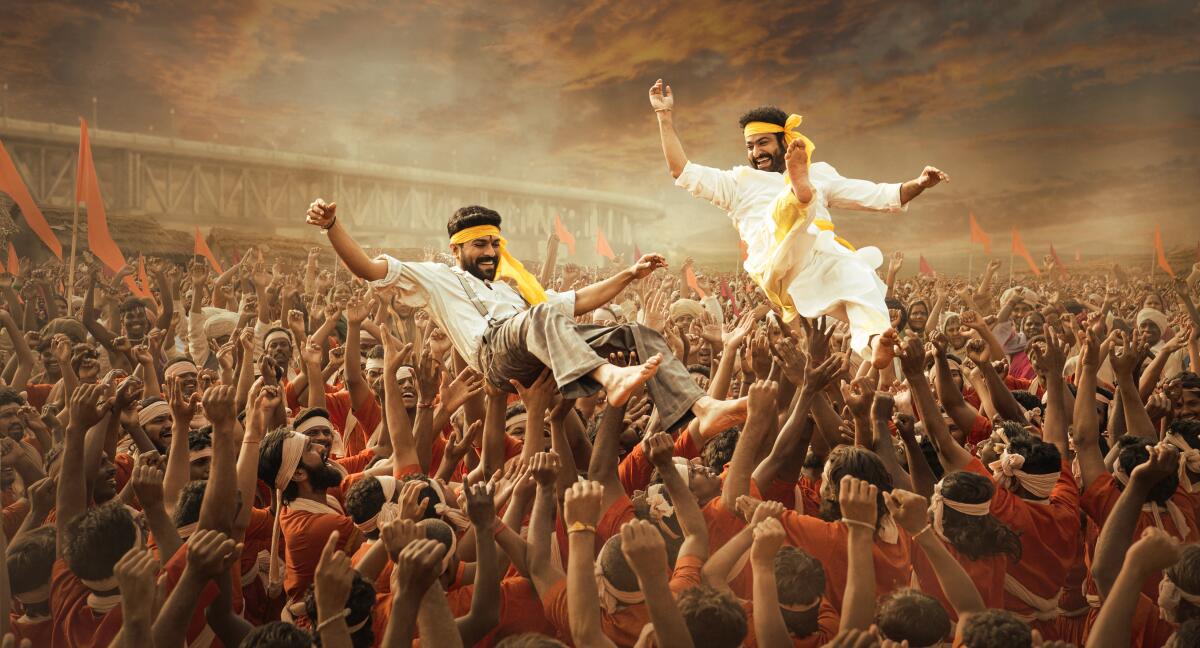
On Saturday night, the Academy Museum will present a program celebrating the music of Indian cinema, focusing on 2022’s “RRR,” 2008’s “Slumdog Millionaire” and 2001’s “Lagan.”
The talk will be followed by a live tabla and dance performance reinterpreting the music of all three films.
On Sunday, “RRR” will screen in 4K at the David Geffen Theater. Anyone who has yet to experience the miraculous “Naatu Naatu” musical number in a theater would be well-advised to attend.
Alejandro Jodorowsky in L.A.
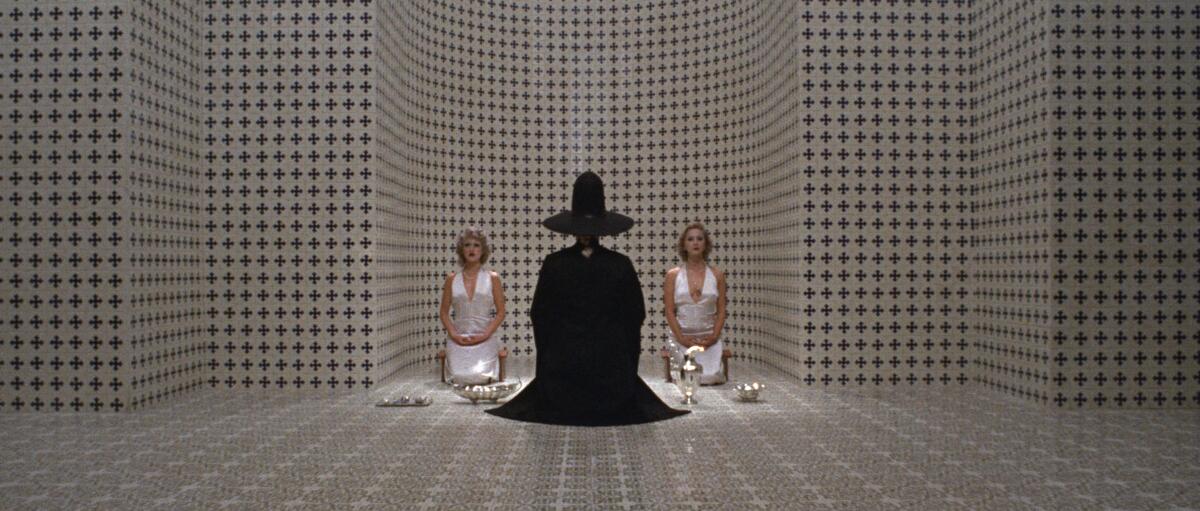
This weekend, the American Cinematheque will be screening four films by Alejandro Jodorowsky at the Egyptian Theatre with the filmmaker in attendance. The opportunity to see these films, including the milestone works “The Holy Mountain” and “El Topo,” in a theater like the Egyptian is very exciting. Though all four shows are already sold out, there will be standby lines.
Carlos Aguilar spoke to the Chilean-born Jodorowsky, 95, in a recent video call from the filmmaker’s home in Paris. A conversation with the director can become as twisting and brain-expanding as one of his psychedelic-tinged films. A simple question about Los Angeles leads to him saying, “Should I answer in an educated manner or should I answer in my own way?”
Encouraged to speak his mind, Jodorowsky continued, “I don’t want to say, ‘Los Angeles is so wonderful.’ I can’t tell you if I like it. It depends on the spiritual, intellectual, emotional, sexual, physical state I am in at that moment. I will answer when I get there.”
Only good movies
Get the Indie Focus newsletter, Mark Olsen's weekly guide to the world of cinema.
You may occasionally receive promotional content from the Los Angeles Times.




